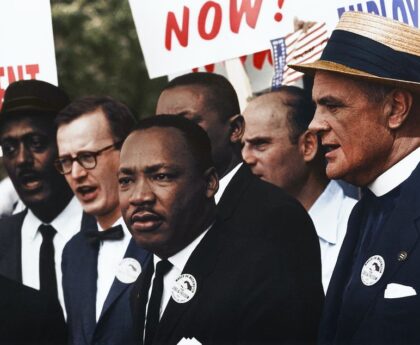Outrage and Condemnation After Deadly Gaza Hospital Strike
A recent strike on a Gaza hospital compound, which health officials claim killed hundreds of people, has incited widespread outrage and condemnation from around the world. The international community, including the African Union, European Union, France, Hezbollah, Jordan, Qatar, Tunisia, Turkey, United Nations, Russia, and the United Arab Emirates, has expressed strong disapproval and demanded accountability for what they call a “brutal” and “unacceptable” attack on a civilian infrastructure.
African Union and EU
The African Union’s chief, Moussa Faki Mahamat, denounced Israel for committing a “war crime.” He expressed deep condemnation, stating that there are no words to fully express the gravity of Israel’s bombing of the Gaza hospital. Faki called for immediate international action to address this horrific incident.
The EU’s chief, Charles Michel, asserted that targeting civilian infrastructure in Gaza violates international law. He emphasized that an attack on a hospital is not acceptable under any circumstances. EU foreign affairs chief Josep Borrell added that the news about Al-Ahli Arabi Baptist hospital in Gaza adds to the already tragic situation. The EU leaders discussed the issue during a videoconference and expressed their dismay at the escalating violence in the region.
France
French President Emmanuel Macron strongly condemned the targeting of civilians in the Gaza hospital strike. He stressed that nothing can justify this act and called for immediate humanitarian access to the Gaza Strip. Macron expressed solidarity with the Palestinian victims and urged the international community to intervene without delay.
Hezbollah and Jordan
Hezbollah, Lebanon’s Iran-backed movement, labeled the strike a “massacre.” In a statement, they blamed Israel for this brutal crime and called for a “day of rage” to protest against the enemy. Jordan’s foreign ministry also condemned the incident and squarely held Israel responsible for this grave incident. As a result, Jordan canceled a summit on peace negotiations that was scheduled to involve US President Joe Biden.
Qatar and Tunisia
Qatar’s foreign ministry characterized the hospital strike as a “brutal massacre” and a “heinous crime against defenseless civilians.” They condemned the attack on Ahli Arab Hospital and deemed it a dangerous escalation in the ongoing confrontations. In Tunisia, hundreds of angry protesters gathered outside the French embassy to denounce the US and France in light of the hospital strike. They demanded the recall of ambassadors from both countries.
Turkey and UN
Turkish President Recep Tayyip Erdogan criticized Israel for its attack on the Gaza hospital, describing it as a violation of the most basic human values. Erdogan called on the international community to take action to halt this unprecedented brutality. The UN’s human rights chief, Volker Turk, strongly condemned the hospital strike as totally unacceptable. Turk emphasized the need to hold the perpetrators accountable for this horrific crime against the most vulnerable people.
Russia, United Arab Emirates, and WHO
Russia and the United Arab Emirates have called for an emergency UN Security Council meeting to be held on Wednesday to discuss the deadly strike. The World Health Organization (WHO) also condemned the attack and demanded immediate protection for civilians and healthcare in the Gaza Strip. They highlighted that the hospital was operational, with patients, healthcare workers, and displaced people seeking refuge. Early reports indicated hundreds of casualties.
Editorial: Reflection on the Gaza Hospital Strike
It is deeply troubling and disheartening to witness such a devastating attack on a hospital, a place that should represent safety, care, and healing. The international community has spoken with a united voice in denouncing this brutal act and demanding accountability. However, it is important to examine the underlying causes of such violence and the ethical implications it raises.
The Right to Life and Protection of Civilians
The strike on the Gaza hospital raises critical questions regarding the right to life and the protection of civilians during armed conflicts. International humanitarian law, as well as universally recognized principles, clearly prohibit targeting civilian infrastructure, such as hospitals. The deliberate attack on a medical facility not only violates these laws but also disregards the fundamental value of human life.
Every effort must be made to ensure that civilians, including patients, healthcare workers, and displaced individuals seeking refuge, are protected from harm. The international community, as well as the parties involved in the conflict, must prioritize the safety and well-being of vulnerable populations, especially in times of crisis.
The Role of Accountability
Accountability for such grave human rights violations is crucial for promoting justice, preventing future atrocities, and ultimately achieving lasting peace. The UN, through its human rights mechanisms, must conduct a thorough investigation into the hospital strike and hold the responsible parties accountable. This includes both internal investigations by the concerned parties and international scrutiny to ensure transparency and impartiality.
Lessons From the Past
It is essential to learn from past conflicts and their aftermath to prevent the repetition of such tragedies. The Gaza Strip has experienced numerous bouts of violence, resulting in significant loss of life and destruction. Addressing the root causes of the conflict, including access to basic services, political grievances, and the underlying power dynamics, is vital to finding a sustainable solution.
Advice for the International Community
In light of this horrifying incident, the international community must take immediate action to de-escalate the situation and exert pressure on all parties involved to observe the principles of international humanitarian law. Diplomatic efforts should be intensified to facilitate dialogue and negotiation, aiming at a peaceful resolution to the conflict.
Moreover, humanitarian access to the Gaza Strip should be ensured without delay. Assistance, including medical supplies, must be provided to meet the urgent needs of those affected by the conflict. Efforts should also be made to address the long-standing issues of inadequate healthcare facilities and infrastructure in the region.
Ultimately, a lasting and comprehensive solution to the Israeli-Palestinian conflict requires addressing both the immediate concerns, such as the protection of civilians, and the underlying root causes that perpetuate the cycle of violence. It calls for a genuine commitment to peace, justice, and respect for the human rights of all individuals involved.

<< photo by JESHOOTS.COM >>
The image is for illustrative purposes only and does not depict the actual situation.
You might want to read !
- Slowdown in inflation strengthens case for interest rate pause next week in Canada
- Google Doodle pays tribute to pioneering Calgarian Violet King Henry
- “Exploring the Prospects and Pitfalls of a Guaranteed Universal Basic Income in Canada”
- Landlord’s Hate Crime Charge in Wake of Muslim Boy’s Tragic Death in Illinois
- Duck Dynasty: Crushing Defeat Leaves Oregon Heartbroken at UW
- The Rise of Connor Bedard: Montreal Canadiens Welcome the Hockey Prodigy in a Thrilling Showdown with the Blackhawks
- Hate Crime in Illinois: Justice Sought for the Tragic Killing of a Young Muslim Boy
- Foreign National Palestinians Receive Support Amidst Israel-Hamas Conflict
- “Russia’s Deadly Strike in Kramatorsk Magnifies Ukraine Crisis”
- “England Triumphs over Italy: Kane’s Brace and Bellingham’s Brilliance Secure Victory”
- The Eagles Make a Play for All-Pro WR Jones
- Flying High: Cozens’ OT Goal Elevates Buffalo Sabres to 3-2 Win




